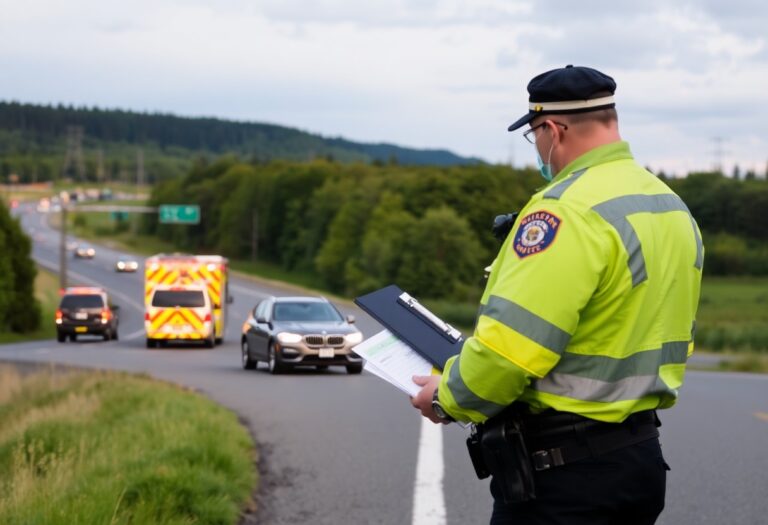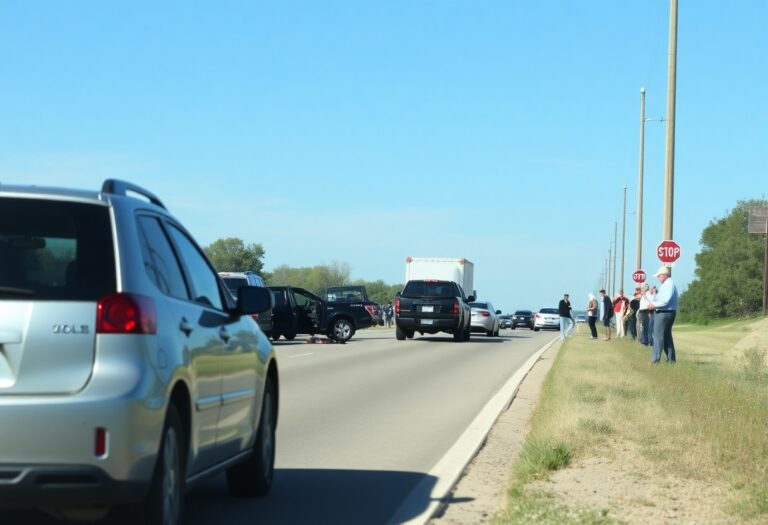Reports regarding car accidents in Jeff Davis County can be easily obtained, ensuring you have the information you need when it matters most. Whether you’re involved in an accident or need to assist someone else, understanding how to access these reports is vital. This guide will walk you through simple steps to obtain your car accident reports efficiently, equipping you with the right knowledge to navigate the process without unnecessary hassle. Your ability to access these important documents can help in legal or insurance matters, making the entire experience smoother and more straightforward.
The Legal Framework: Understanding Accident Report Accessibility
Accessing car accident reports in Texas operates under a structured legal framework that ensures transparency and accountability. The Texas Transportation Code provides clear guidelines that govern how these documents can be obtained, focusing on balancing the needs of public disclosure with privacy concerns. Being familiar with these laws can facilitate a smoother process for you when seeking the information you need following an accident.
Key Texas Laws Governing Car Accident Reports
Texas law, specifically under Chapter 550 of the Texas Transportation Code, outlines the rights to access accident reports. Under this law, private entities, law enforcement agencies, and the public can obtain a copy of reports involving motor vehicle accidents, provided they adhere to certain stipulations. Reports can be requested using forms available at police stations or through online platforms, expediting the process for your convenience.
Who Can Request a Report?
Your eligibility to request a car accident report in Texas extends beyond just involved parties; it typically includes anyone who is directly affected by the incident. This can include victims, insurance companies, or attorneys representing either side, ensuring that anyone with a legitimate stake in the case has access to pertinent information.
In addition to those directly involved in the accident, anyone with a demonstrable interest, such as witnesses or family members of victims, can also request the report. It’s common for insurance firms to seek these records to expedite claims processing, while legal representation often utilizes them to prepare for court cases. Ensure you provide necessary details when submitting requests, such as your name, the date of the accident, and relevant case numbers to streamline the process further.
The Step-by-Step Retrieval Process: Simplifying Your Request
| Step | Description |
|---|---|
| 1 | Determine the report type required and gather necessary details such as the accident date and location. |
| 2 | Choose your retrieval method: online or in-person, based on convenience and urgency. |
| 3 | Follow the specific guidelines for the method selected to ensure a smooth request process. |
| 4 | Submit your request and wait for the processing, which may take a few days. |
| 5 | Receive your report via the chosen method and review it for accuracy. |
Online Platforms for Accessing Reports
Accessing car accident reports online is straightforward. You can visit the official website of the Texas Department of Transportation (TxDOT) or local law enforcement agencies. Most platforms allow you to input details like your name, the accident date, and report number if available. After submitting your request, you often receive a download link or a physical copy via mail, streamlining the entire retrieval process.
In-Person Requests: What You Need to Know
For those who prefer an in-person approach, visiting the appropriate law enforcement office or courthouse is necessary. Bring crucial documentation, such as identification, details about the accident, and payment for applicable fees. The process can vary slightly depending on the agency, but typically involves filling out a request form and paying the associated costs.
At the office, it’s common to encounter a dedicated records division that handles accident report requests. Ensure you allocate sufficient time for your visit, as the processing can take a while during busy periods. Having your vehicle’s identification number (VIN) and any police report numbers on hand can expedite the process. Additionally, be aware that some agencies might require you to visit during specific hours or on designated days for the best service experience.
Fees and Processing Times: Budgeting for Your Report
Understanding the fees and processing times associated with obtaining your car accident report in Jeff Davis County, Texas, will help you budget effectively and set realistic expectations. This section breaks down the costs involved and provides estimated timeframes for when you can expect to receive your report, ensuring a smooth retrieval experience.
Breakdown of Associated Costs
The fees for acquiring a car accident report typically fall within the range of $6 to $10. This nominal fee may vary based on the department or method of request. Should you require the report through mail or need certified copies, additional shipping or processing fees could apply, so it’s wise to account for those in your overall budget.
Estimated Timeframes for Report Availability
Upon submitting your request, the processing times for obtaining a car accident report generally range from 5 to 15 business days. If the request is made in person, you might receive the report on the same day, while online requests could take longer due to verification processes.
Often, the quickest way to access your report is through an in-person visit, particularly if the incident occurred recently and the report is readily available. Digital requests, while convenient, may involve delays – especially if the system encounters high traffic or if additional verification processes are initiated. Regardless, you can always check with the local law enforcement agency for the most current status of your request to keep your expectations aligned with the processing timelines.
Insights from Local Authorities: Enhancing Your Experience
Interacting with local law enforcement can greatly enhance your experience when obtaining accident reports. Officers are often amenable to answering questions and providing guidance on the specific details included in the reports. They can clarify terminology and expound upon procedures, which can save you time, especially if you are unfamiliar with the processes.
Tips from Law Enforcement on Efficient Requests
- Gather all necessary information, such as the report number, date, and location of the incident.
- Use official channels, like online portals or designated phone numbers, to submit requests.
- Be polite and concise in any communication with law enforcement to expedite your request.
- Check for updates on the status of your request regularly.
Assume that your inquiry will be handled more efficiently if you follow these tips and provide accurate information upfront.
Resources Available for Victims and Families
A variety of resources are available to support victims and their families as they navigate the aftermath of a car accident. Local charities, legal aid organizations, and counselors offer assistance, guidance, and support tailored to your needs. Additionally, many hospitals and community centers have victim advocacy programs designed to help families access legal resources and emotional support.
Organizations like the Texas Department of Transportation provide websites and hotlines that connect victims to important resources, including legal aid and counseling. Engaging with these organizations not only provides immediate support but also connects you with local experts who can guide you through the legal and insurance processes. They can help you better understand your rights and the emotional impacts resulting from an accident. For instance, local support groups may offer regular meetings or events to help families cope together. The sooner you reach out, the more opportunities you’ll have for healing and recovery in your community.
Common Pitfalls: Avoiding Mistakes in the Process
Understanding potential pitfalls can save you time and frustration when accessing car accident reports. Many individuals fall victim to common mistakes that lead to delays or denials. Always double-check the specific requirements before submitting your request to avoid unnecessary setbacks. Not all information is readily apparent, so being thorough and precise is your best strategy.
Misunderstandings About Report Contents
Many people assume that the car accident report includes all details surrounding the incident, including opinions about fault or personal information from all parties involved. In reality, reports typically contain only factual information like the location, date, and a summary of the events. Clarifying what is included in these reports helps set realistic expectations and prevents unnecessary frustration during retrieval.
Errors to Avoid When Filling Out Requests
Common errors when filling out requests often stem from incomplete information or mistakes in the required details. Ensure that all your contact information is accurate and easily readable. Pay particular attention to the report number, as an incorrect number can result in a request being delayed or rejected. Properly identifying the involved parties and being precise with your details can prevent processing issues.
Here are a few common errors that can occur during the request process: failing to include necessary documentation, such as identification or proof of your stake in the incident, can lead to complications. Additionally, neglecting to specify the exact report you need might cause confusion, leading to delays. When submitting your request, always double-check that you have all required items and that they are accurately filled out to keep the process smooth.
Conclusion
On the whole, accessing car accident reports in Jeff Davis County, Texas, can be a straightforward process when you know the steps to take. You can utilize various resources, including online portals and local law enforcement, to obtain the information you need efficiently. By following these guidelines, you’re better equipped to manage any inquiries regarding accident reports, ensuring you have the necessary documentation at your fingertips for insurance or legal purposes.













